|
The Big Mis
|
Okay, so here’s a comment I’ve had, in various permutations, from some of the contest judges who’ve read my first 25-30 pages and synopsis. It goes like this:
The conflict in GOTH is too weak to sustain a full-length book because there’s a Big Mis.
Well….
In a way, they are right. Yes, there is a Big Mis. And if it were the sole source of conflict, it would indeed be insufficient to sustain a whole book. In actuality, this particular misunderstanding only persists for less than 1/3 the book, and there’s plenty of other stuff going on meanwhile.
So first – I realize my synopsis is failing to adequately communicate the nature of the Big Mis, and the fact that their misunderstanding is a symptom of their conflict, rather than the cause. Yes, in the end, it’s a conversation and “I love you’s” that make for an HEA – but they can’t have that conversation until they each work through their own internal conflict. They’re misunderstanding each other because they’re misunderstanding themselves – their strengths and worth as individuals, their capacity to love and be loved. I have to work on revising my synopsis to reflect this, which shouldn’t be too hard.
Second – The synopsis could evidently do a better job of reflecting the tone of my book. The Big Mis is but one of many absurd plot devices in GOTH. The entire plot depends on a series of misunderstandings, ill-timed interruptions, and strange coincidences. My intention was to write an over-the-top comedy with a layer of authentic romance that ultimately transcends the silliness. So, how do I ‘wink’ at the reader of my synopsis to say, “Yes, I know this is ridiculous. It’s meant to be a bit silly, but the romance is real.” That’s a challenge.
Third, however, there seems to be an implication in the judges’ comments that a misunderstanding can never be a legitimate conflict. It’s like another Rule of Romance that’s sprung up – any book with a Big Mis is an automatic wallbanger. And sure – fans of angsty murder or espionage subplots will not be drawn to GOTH. It’s just not that kind of book. But I take exception to the notion that a Big Mis is always a Bad Idea.
At the risk of hearing you all groan, “not THAT again!” – I point to my perennial example, Pride and Prejudice. There are a few villain-ish characters in P&P – Wickham and Aunt Catherine – but they aren’t the true antagonists. What really keeps Elizabeth and Darcy apart is their own internal … well, pride and prejudice, as reflected in the ways they continually misunderstand one another. Moreover, the plot of P&P is pushed along by all manner of absurd coincidences – Elizabeth’s cousin just happens to be the vicar on Darcy’s aunt’s estate, she just happens to visit Pemberley on the same day Darcy arrives unannounced; of all the officers Lydia could have run off with, she picks the same one who nearly ruined Darcy’s sister….
Now GOTH is no P&P, don’t get me wrong. But if a Big Mis worked for Austen, why should it be off-limits to the genre she inspired?
Can you think of other examples of novels, romance and otherwise, where a Big Mis works? I’m thinking that near the end of Gone with the Wind, for example, there’s a point where the only thing keeping Scarlett and Rhett apart is a misunderstanding. She’s sick and wants to call out for him, but she resists, thinking he doesn’t love her. All the while, he’s waiting for her to call for him, just once – and when she doesn’t, he gives up forever. Siiiigh.



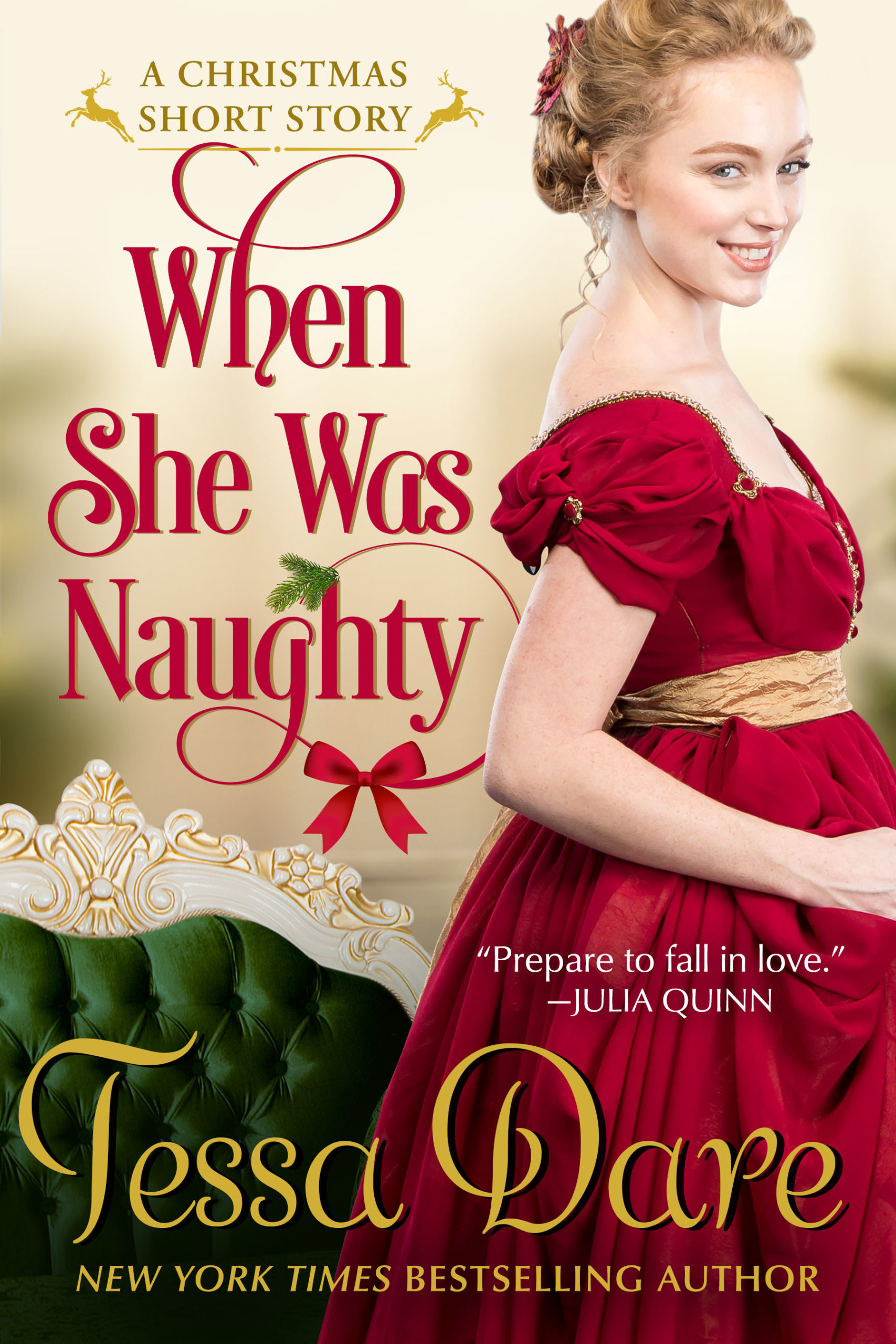
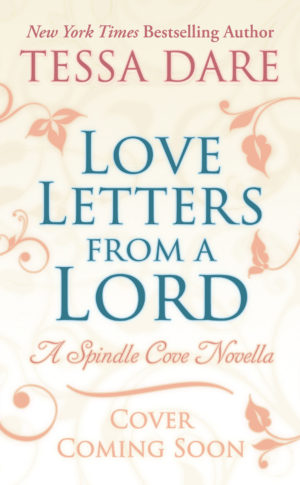
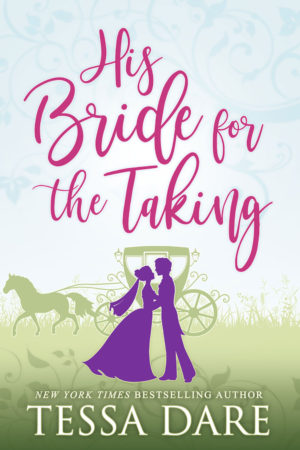
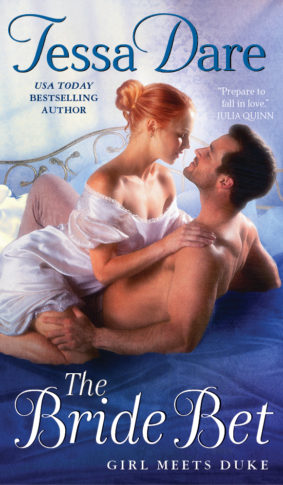
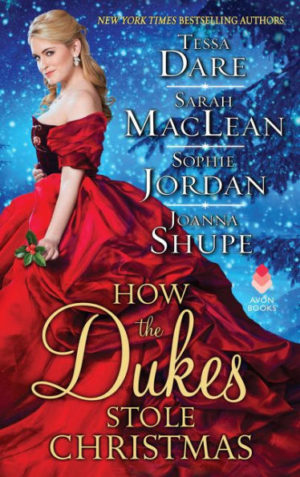

May 24th, 2007 at 1:45 pm · Link
What conflict is there between Jessica & Dain except Dain’s own self-loathing?
I don’t think that a plot device can ever be called a wallbanger per se. Because I also see people who assiduously try to avoid wallbangers by introducing conflict other than Big Misunderstandings, and the conflict is so dumb I just can’t stand to finish the books.
I won’t name names, because there are some excellent spy books out there–but there are also some spy books that just make my eyes glaze over.
May 24th, 2007 at 2:58 pm · Link
E/T: I’ve read GOTH. Consider yourself sustained. This, I think, is exactly what’s wrong with queries/synopses…you just can’t “tell” about a book unless you read the whole damn thing…or throw it up against a wall.;)
I have said it before and I’ll say it again. I’ve found it easier to write entire books than the query letters/summaries of them. And to distill it all in one word or sentence, oh dear.
May 24th, 2007 at 3:09 pm · Link
I wouldnt know the difference between The Big Mis and a Little Mis. They are all nuthin’ but macguffins anyway. More important to me is an author’s voice and stylistic choices.
If I dont like the author’s voice and style, any little thing might set me off and make me stop reading. Altho technically, I have never thrown a book against the wall. (Ive come close maybe once.)
May 24th, 2007 at 6:02 pm · Link
Ok…apparently I am very different from the judges because I love the big misunderstanding. But let me qualify that, as long as it’s understandable, I love it. For example if the thing keeping the hero and heroine apart is that she THINKS he cheated and her only evidence is that he once was a rake, that doesn’t cut it. But if she’d resisting him because she saw a woman exiting his room in the middle of the night, now that works. Also I like a series of misunderstandings, and what are Judit Mcnaught books if not that?! She’s not my favorite,but surly she is other people’s.
I think your story sounds grand. And I truly think you should let me read it soon!lol.
And I agree with seton, voice trumps all!
May 24th, 2007 at 6:19 pm · Link
I guess, in Kelly’s example, it would annoy me if she assumed that he was cheating and avoided him because of that; and as soon as she found out she was wrong, it was all hugs and kisses. That is a big misunderstanding.
It stops being that when the misunderstanding arises from something more–why didn’t she trust him? Why didn’t she talk to him? If there are good answers to that, and the characters overcome them, I’m sold.
But I do hate Big Misunderstandings that are nothing other than misunderstandings.
May 24th, 2007 at 10:39 pm · Link
Well, I would agree that a misunderstanding based on a completely groundless assumption with no character motivations attached is pretty damn annoying. I mean, the word ‘misunderstanding’ implies an attempt to comprehend the other person’s words or actions. What you describe is more a “complete and willful lack of understanding,” or, as it’s more commonly known, Just Plain Stupidity.
Just Plain Stupidity does not work for me as a conflict, either.
But there are always moments in our lives where we are presented with a word or an action that we could interpret in different ways. Sometimes wildly different ways. And the interpretation we choose speaks volumes about our own state of mind and self-perception.
May 24th, 2007 at 10:48 pm · Link
Very true, Tessa. My examples weren’t the greatest, but I agree with precisely what you said.
May 24th, 2007 at 10:55 pm · Link
Oh, Kelly – let me clarify… when I said “what you’re describing,” I was referring to CM’s example. I don’t want you to think I was dissing your example – not at all. I agree that there are ways that situation could make for believable conflict and ways it would make me cringe.
And no one here is Just Plain Stupid!
May 24th, 2007 at 11:24 pm · Link
Well, I’m not quite sure that there is, a BIG misunderstanding in Goth which keeps them apart. Certainly not one that could be solved early on with an honest conversation. Those kids have problems!
So I guess it’s about saying straight out in the synopsis what the true conflict is, so people judging the book without the full will understand.
As for all the little misunderstandings and coincidences, these seem standard regency fare. I am not a huge fan of these, but when well done, I do not object. It’s all in the telling. If it’s fresh, I’m for it.
And your book is fresh. And fabulous.
May 25th, 2007 at 7:24 am · Link
I have to wonder who these judges are and as we all know, these are just their opinions. Let us not forget opinions are like assholes – everybody has one and who needs another?
That said, it’s not like mainstream historical novels have major (cold war, serial killer, jewelry heist) conflicts thrown in. The point is to give a reason these people don’t simply fall into each other’s arms and live happily ever after. The reason can be any number of things but the most common and most relatable is the Big Mis.
I am not one of those lucky enough to have read GOTH but I know you have real talent and you know how to tell a story. So I highly doubt these opinions are correct. *g*
May 25th, 2007 at 8:15 am · Link
LOL, Terri! Thanks for your support.
I want to stress that I’m not saying these judges are Wrong – they’re only going off of my synopsis. Perhaps if they read the whole book, they would think the conflict is developed enough. Perhaps they wouldn’t – like I said, GOTH isn’t the book for a reader who prefers dark-n-angsty romance. And in all cases, they all say something like, “your writing is so good, I wish you had a meatier plot.” So the main lesson I’m taking from these comments is that I need to tweak the synopsis. That’s no biggie.
But it just made me wonder about the general dissing of the Big Mis, and not just in these comments. I’ve heard over and over that, if all it takes to resolve the conflict is a simple conversation, it’s a weak conflict. Sure, I completely agree.
But it doesn’t follow that all it takes to resolve every Big Mis is a simple conversation. What I’m fearing is that some people have this prejudice now that Misunderstanding = Weak Conflict, and I’d argue it can go either way.
Take Kelly’s example. The heroine sees the hero emerging from another woman’s bedroom. She assumes he’s been unfaithful to her. Now – if the hero is an otherwise perfect guy, and the heroine has no other reason to believe he would do this, and the misunderstanding persists simply because she refuses to ask him the truth … that’s a weak conflict. But say they’re an estranged husband and wife, and the hero has a history of infidelity for which he has never fully atoned, and the heroine has deep-seated insecurities about her own attractiveness, and she’s afraid to bring up the topic with him because the last time she confronted him about an affair, he left her for ten years. That’s conflict that can’t be resolved by a simple conversation.
I guess it all boils down to, is the misunderstanding is a symptom of the conflict, or the cause?
May 25th, 2007 at 8:32 am · Link
I totally agree with everything that’s being said. I think the Big Mis gets a bad rap because its so often been done as, as Tessa so aptly puts it, Just Plain Stupidity.
Romance plots are all about a couple learning effective communication. If the hero and heroine can perfectly understand the other’s feelings and unreservedly express their own, then where’s your conflict? Especially in a comedy of manners. I defy you to produce a single romance in which one person doesn’t withhold information from the other – even in a spy story.
So saying GOTH has a Big Mis is equivalent to saying Lucy is TSTL. Yeah, maybe in the broadest sense of the term, but not in the way its been denigrated to only represent the worst of what it can encompass. If that makes any sense.
May 25th, 2007 at 10:47 am · Link
Oh…I didn’t think I was being dissed.lol. Sorry it took me so long to reply back. And I agree that a big misunderstanding that can be resolved over a cup of coffee is weak, but what you described works perfectly. This is a good blog!
May 25th, 2007 at 11:23 am · Link
Great discussion. This is part of why I don’t enter contests, as a rule. Who are the judges? Are they experienced, or are they using The Rules to decide my book is unsalable and therefore deserves a 36? And on and on.
As for Big Mis, I just submitted my second novel and while *I* don’t think it’s a BM at all, I worry that other people might *decide* it’s a BM. Character-driven plots are hard that way, and like you, Tessa, my second novel is a COE. If I had to dig really, really deep and get a meaty plot out of it, it wouldn’t be funny anymore because I’d lose all the great spots to stick non sequiturs!
May 25th, 2007 at 1:15 pm · Link
The Big Mis has turned into one of those rules that nobody understands the animating principles for.
What I was trying to say–badly–last night was that there is such a thing as an annoying Big Mis. Either it’s because the misunderstanding is unmotivated by anything except the author’s desire to drag the book on to the requisite length, or it’s because the misunderstanding is motivated by gibberish (there are also Big Mis books where the characters blow hot and cold every other chapter, which are equally annoying).
In both cases, it comes down to the same thing: There’s no true conflict between the hero and the heroine. There’s no real reason why they can’t fall into each other’s arms immediately, and so the author invents a fake one.
That is annoying as all get out. And it happens.
But the point is not that misunderstandings are a bad plot device; it’s that a misunderstanding, without more, is not conflict. A misunderstanding that arises from real conflict, on the other hand, is totally fine.
May 25th, 2007 at 1:20 pm · Link
Perhaps working on the synopsis so that it accurately reflects the book might help clarify the conflicts. I know when I have to start summarizing, I see where I can add a twist or two, just to keep the readers on their toes.
May 25th, 2007 at 1:30 pm · Link
Okay, I know this isn’t meant to be a critique of contest judges & the like, but I wonder if the Big Mis and other Unbreakable Rules aren’t all just self-perpetuating myths.
So, I just did a critique of Sara Lindsey’s new synopsis (which is so fab!) and cautioned her about the Big Mis. Tessa just got marked down for it, so I feel like I’m not being a good CP if I don’t warn Sara. But that’s ridiculous – I know perfectly well that Sara is fully capable of creating a misunderstanding that is rooted in necessary conflict.
But when you’re giving feedback, you feel like you have to caution against any potention problem, and judges don’t necessarily know from 30 pages & a synopsis that you are capable of handling the Big Mis.
And maybe (like me) they don’t even have a personal problem with the Big Mis, but they were once warned against it when they were in a contest and feel compelled to warn you… and it’s a never ending cycle that probably stems from a few incompetent people who had wallbanger Big Mis plots that were rejected or scored low and then spread the word to all their friends. So now we’re all reactionary and OMG NO! NOT THE BIG MIS! EVERYONE HATES THE BIG MIS! when really, we just all hate the poorly done Big Mis – in the same way we hate the poorly done secret baby or virigin widow or other romance cliche that gets a bad rap when in the wrong hands.
May 25th, 2007 at 2:05 pm · Link
Thanks, Lindsey!
I, too, hate that misunderstandings have gotten such a bad rap. I understand that a Big Mis that takes up the entire book and could be resolved by a simple convo is aggravating, but misunderstandings are a part of life. Romantic relationships – where we’re that much more vulnerable – are subject to all sorts of overanalysis and misinterpretations.
And I think synopses are the devil and should be banned from the first round of contests. The first thirty pages shouldn’t need it, and a one-page set-up should be enough for a scene that comes later on in the book. I can understand why an editor/agent would want to see a synopsis, but I don’t think they belong in the hands of first-round judges. They’re too open to misunderstandings!
May 25th, 2007 at 2:47 pm · Link
To me it depends on the misunderstanding. I know I can’t stand stupid misunderstandings especially in movies. I also think for contests (especially if they don’t require a synopsis), I don’t think it’s fair for them to say the conflict they read at the beginning can’t sustain an entire book. They have no idea what happens in the next 350-375 pages.
May 25th, 2007 at 3:09 pm · Link
You know, this really makes me think. We all hate the misunderstanding that could be solved with a conversation, but with the divorce rate so high I wonder at how many marriages end because of the couples innability to communicate. Dr.Phil is always telling people they have to talk. It’s just yet another thing to puzzle over.
May 25th, 2007 at 3:28 pm · Link
Ooh, what a great conversation we’re having!
Kelly, I completely agree. I find a misunderstanding to be a very plausible source of conflict in a relationship, as opposed to, say, the heroine’s determination to solve the ancient riddle of King Karnak’s Whatsit and avenge her second-cousin’s murder before she could possibly consider marriage. We can all relate to miscommunication.
Sara – leaving off the synopsis in contest entries is one idea. But then, as Bev says, sometimes you get the same comment based on the pages alone. I mean, the judges are probably trying to be helpful. That’s the purpose of contests, after all – they are supposed to save you from making mistakes with editors or agents. Both of the judges who made this comment about my synopsis were published authors. And they both were otherwise very complimentary of my writing. I don’t think they were just looking for reasons to nitpick. I’m not at all bitter about it.
May 27th, 2007 at 11:06 pm · Link
First off, we cannot shorten the Big Mis to BM because I keep reading bowel movement. LOL! I’m such a child sometimes.
Great discussion. I am majorly worried about this in my WIP. I’m writing single title contemp and it’s just a story about real people trying to overcome some issues, fears and insecurities to find their HEA. There are no super rich characters and though they are attractive people no one is a runway model or gracing the cover of People.
I’m hoping real life (which btw is FILLED with misunderstandings) along with some humor, some sexual tension and a sappy love story will be enough.